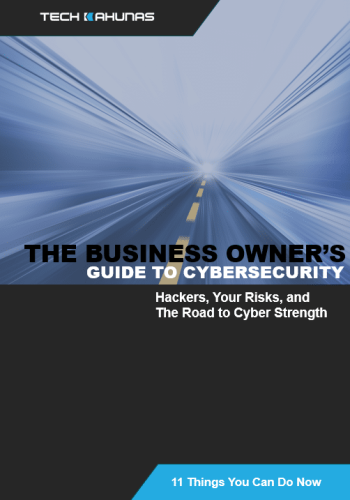Integrated GRC solutions are vital for addressing the cybersecurity and compliance challenges in the biotech sector. By enabling structured identification and mitigation of risks, these frameworks integrate risk management into core operations, proactively managing evolving threats. Biotech firms face significant challenges in protecting intellectual property and patient privacy in a dynamic threat landscape, necessitating GRC solutions for strategic risk management. Compliance with stringent regulatory requirements is achieved through proactive strategies, regular assessments, and robust access controls. Embracing integrated GRC enables holistic risk assessments, enhancing data governance and audit management. Further exploration will illuminate the true strategic benefits.
Key Takeaways
- Integrated GRC solutions streamline risk management and regulatory compliance in the biotech industry.
- These frameworks enable proactive threat identification and mitigation, enhancing cybersecurity defenses.
- Centralized GRC platforms improve audit management and ensure regulatory adherence.
- Advanced data encryption and access controls protect sensitive biotech data.
- Continuous staff training fosters a culture of compliance and risk awareness.
Understanding GRC in Biotech
In the intricate landscape of biotechnology, Governance, Risk, and Compliance (GRC) frameworks serve as a pivotal mechanism for managing cybersecurity challenges. These frameworks provide a structured approach to identifying, evaluating, and mitigating risks inherent in the biotech industry.
A sophisticated GRC framework encompasses risk evaluation processes that allow organizations to systematically assess potential threats and vulnerabilities. By integrating risk evaluation into the core of their operations, biotech firms can preemptively address potential cybersecurity threats, consequently safeguarding sensitive data and proprietary technologies.
Strategically, GRC frameworks are designed not only to address current cyber threats but to anticipate future challenges. They establish protocols and guidelines that guarantee compliance with regulatory standards, thereby maintaining the integrity and confidentiality of data.
Effective implementation of GRC frameworks requires a deep understanding of both the technical and regulatory landscapes. This involves aligning risk management strategies with organizational objectives and regulatory requirements.
Cybersecurity Challenges in Biotech
Biotech companies face significant cybersecurity challenges, primarily centered around the protection of sensitive data, which is essential for maintaining intellectual property and patient privacy.
The constantly evolving threat landscape demands a proactive approach to identify and mitigate risks, necessitating robust awareness and adaptive security measures.
Additionally, stringent regulatory compliance requirements must be met to avoid legal repercussions and guarantee operational integrity, making integrated GRC solutions indispensable for strategic risk management in this sector.
Sensitive Data Protection Needs
Safeguarding sensitive data stands as a paramount concern within the biotech sector, where cybersecurity challenges are both complex and evolving. The protection of critical information, such as proprietary research data and patient records, necessitates robust strategies.
Data encryption and access control are pivotal in fortifying these defenses. Encryption guarantees that sensitive data remains unintelligible to unauthorized entities, thereby mitigating risks associated with data breaches. Access control, on the other hand, regulates who can view or modify this data, thereby reducing the likelihood of internal threats.
To effectively protect sensitive data, biotech organizations should consider the following strategic actions:
- Implement Thorough Data Encryption Protocols: Encrypt data both at rest and in transit to safeguard against interception and unauthorized access, guaranteeing confidentiality and integrity.
- Establish Rigorous Access Control Measures: Employ role-based access control (RBAC) systems to limit data access to only those individuals whose roles require it, thereby minimizing the potential for internal data misuse.
- Conduct Regular Security Audits and Risk Assessments: Regularly evaluate the efficacy of current security measures, identify potential vulnerabilities, and adjust strategies to address emerging risks effectively.
Evolving Threat Landscape Awareness
Amidst the rapidly shifting landscape of cybersecurity threats, awareness of evolving challenges is vital for biotech organizations to maintain robust defenses. The sector’s reliance on cutting-edge research and emerging technologies makes it a prime target for cyber adversaries.
To address these threats, biotech companies must employ thorough threat intelligence to stay informed about potential attack vectors. This intelligence forms the foundation for effective risk assessment and threat modeling, allowing organizations to anticipate and mitigate risks proactively.
A robust security framework is indispensable for identifying and prioritizing vulnerabilities, facilitating thorough vulnerability management. By integrating advanced security measures, biotech firms can guarantee their defenses are capable of withstanding sophisticated attacks.
Incident response strategies must be continuously refined to address potential data breaches swiftly and efficiently, minimizing impact and guaranteeing continuity of operations.
Moreover, security awareness across all organizational levels is essential. Training employees to recognize and respond to threats strengthens the human element of cybersecurity defenses.
Implementing a continuous learning approach to security awareness enables biotech companies to adapt to the evolving threat landscape effectively. Emphasizing strategic thinking and technical expertise, organizations can guarantee resilience against emerging cybersecurity challenges, safeguarding sensitive data and maintaining operational integrity.
Regulatory Compliance Demands
Addressing the evolving threat landscape is only part of the cybersecurity challenge faced by biotech organizations; adherence to regulatory compliance demands is equally important. The intricate web of compliance requirements necessitates a robust approach to guarantee audit readiness and effective risk assessment.
Biotech companies must strategically align their cybersecurity frameworks with data governance policies to meet these demands, assuring that documentation management and policy enforcement are not just reactive, but proactive.
Biotech organizations should consider the following key elements:
- Comprehensive Training Programs: Implementing regular training programs is crucial for maintaining policy enforcement and ensuring personnel are prepared for incident response. Training should emphasize the significance of stakeholder engagement to bolster awareness and compliance.
- Advanced Documentation Management: Efficient documentation management systems enable accurate tracking of compliance measures and streamline audit readiness. This includes maintaining meticulous records for any risk assessment processes, thereby facilitating easy access for audits or incident reviews.
- Integrated Data Governance: Establishing a data governance framework is essential for managing sensitive information. This includes setting clear protocols for data handling, which aids in maintaining compliance and enhances the organization’s overall cybersecurity posture.
Regulatory Compliance Demands
The rapidly evolving regulatory landscape in biotech demands a proactive compliance strategy that aligns with stringent cybersecurity mandates.
Organizations must prioritize risk assessment and mitigation tactics to guarantee adherence to complex regulations while safeguarding sensitive data.
Evolving Biotech Regulations
Biotech companies are increasingly maneuvering a labyrinth of evolving regulations that govern their cybersecurity practices. As technological advancements continue to redefine the biotech landscape, regulatory innovation becomes essential in ensuring that organizations maintain robust security frameworks.
Regulatory bodies are enhancing their expectations for biotech transparency, particularly in how data is managed, shared, and protected. These evolving regulations demand that biotech firms integrate cutting-edge governance, risk, and compliance (GRC) solutions to remain compliant and secure.
In navigating these complex regulations, biotech companies must focus on several key areas:
- Data Protection and Privacy: Ensuring compliance with global data protection laws, such as GDPR, necessitates the adoption of advanced data encryption and access controls to safeguard sensitive information.
- Risk Management: Implementing proactive risk assessment protocols enables organizations to identify potential vulnerabilities within their cybersecurity infrastructure, ensuring timely mitigation strategies.
- Regulatory Reporting: Establishing streamlined processes for accurate and timely regulatory reporting can enhance transparency and foster trust with both regulatory authorities and stakeholders.
Compliance Strategy Essentials
When formulating an effective compliance strategy, understanding the regulatory landscape‘s demands is paramount for biotech firms. Maneuvering these complexities requires a robust framework that integrates risk assessment and policy development as foundational elements. A thorough risk assessment allows organizations to identify vulnerabilities and prioritize resources effectively, guaranteeing that compliance efforts align with critical business objectives.
Policy development plays an essential role in translating regulatory requirements into actionable guidelines. These policies must be supported by ongoing training programs designed to keep stakeholders informed about compliance expectations and their role in maintaining them.
Regular audit processes are integral to verifying adherence to these policies and identifying areas for improvement, thereby reducing the risk of non-compliance. Stakeholder engagement is key in fostering a culture of accountability and transparency. By involving key personnel in compliance initiatives, organizations can ascertain that strategic decisions are aligned with regulatory demands.
Additionally, an efficient incident response plan should be established to address breaches swiftly, minimizing potential damages. Technology integration and data governance are fundamental in sustaining compliance efforts.
Leveraging advanced technologies enhances data management and security, guaranteeing that sensitive information is protected in accordance with regulatory standards. This strategic approach not only mitigates risks but also supports long-term organizational resilience.
Benefits of Integrated GRC Solutions
Consistently at the forefront of cybersecurity, integrated Governance, Risk, and Compliance (GRC) solutions offer substantial benefits for the biotechnology sector by streamlining the management of regulatory requirements, risk assessment, and policy enforcement.
These solutions enhance data governance and guarantee robust policy integration, which is essential for maintaining a resilient compliance culture. By providing a centralized platform for risk assessment and audit management, biotechnology firms can efficiently address potential threats and engage stakeholders in informed decision-making processes.
The strategic implementation of GRC solutions facilitates threat mitigation while promoting performance tracking, enabling organizations to maintain a proactive stance against cyber threats. This not only strengthens the organization’s security posture but also ensures that compliance efforts are aligned with evolving regulatory landscapes.
Key benefits include:
- Holistic Risk Assessment: Integrated GRC solutions allow for thorough evaluation of potential risks, providing insights that support strategic decision-making and effective threat mitigation.
- Enhanced Data Governance: By consolidating data management practices, organizations achieve greater accuracy and consistency, vital for robust compliance and policy integration.
- Streamlined Audit Management: Efficient management of audits fosters transparency and accountability, reinforcing stakeholder engagement and fostering a culture of compliance.
These benefits collectively fortify the biotechnology sector’s ability to navigate complex regulatory environments while safeguarding sensitive information.
Implementing GRC in Biotech Firms
Implementing Governance, Risk, and Compliance (GRC) solutions in biotechnology firms requires a strategic approach that aligns with the industry’s complex regulatory landscape. The first step is to conduct a thorough risk assessment, identifying potential vulnerabilities and compliance gaps. This foundational analysis informs policy development, guaranteeing guidelines are robust and tailored to the unique needs of biotech operations.
Staff training is essential to embed a culture of compliance and risk awareness, equipping employees with the knowledge to navigate the regulatory framework effectively.
Concurrently, technology integration is vital, leveraging advanced tools to streamline processes and enhance data security. This integration supports audit management, enabling firms to efficiently track and report compliance activities, thereby reducing the risk of regulatory breaches.
Incident response protocols must be established to swiftly address cybersecurity threats or compliance issues, minimizing potential damage.
Effective stakeholder engagement guarantees that all parties, including regulators and investors, are aligned with the firm’s GRC objectives.
Finally, implementing performance metrics provides a mechanism to evaluate the efficacy of GRC initiatives, facilitating continuous improvement.
Through these strategic actions, biotech firms can strengthen their cybersecurity posture and guarantee regulatory compliance, safeguarding their innovative processes and sensitive data.
Future Trends in Biotech GRC
How will the future of Governance, Risk, and Compliance (GRC) in biotechnology evolve amidst accelerating technological advancements and regulatory demands?
As biotech innovations drive digital transformation, the GRC landscape is poised for significant shifts. The integration of compliance technology within biotech firms will become paramount, enhancing data governance and risk management strategies.
Emerging trends will include:
- Advanced Regulatory Technology: The adoption of AI-driven regulatory technology will streamline compliance processes, enabling firms to adapt swiftly to changing regulations. This will guarantee that strategic partnerships are aligned with industry best practices, maintaining compliance across complex global markets.
- Enhanced Data Governance: With the surge in data generation, robust data governance frameworks will be critical. Biotech companies will leverage advanced analytics and automation to safeguard data integrity, guaranteeing that risk management is proactive and predictive.
- Strategic Partnerships for GRC Optimization: Collaborations with technology providers specializing in GRC solutions will be essential. These partnerships will offer tailored compliance technology that aligns with industry-specific needs, fostering innovation while mitigating risks.
Frequently Asked Questions
How Do Integrated GRC Solutions Differ From Standalone GRC Tools?
Integrated GRC solutions offer a holistic approach to risk management by seamlessly aligning compliance frameworks, unlike standalone GRC tools which often operate in silos. This integration enhances strategic oversight, ensuring thorough risk identification and mitigation across organizational processes.
What Role Does AI Play in Enhancing Integrated GRC Solutions for Biotech?
AI algorithms enhance integrated GRC solutions by employing predictive analytics for threat detection, compliance automation, and risk assessment. This approach guarantees data integrity, enabling biotech firms to strategically manage cybersecurity risks and maintain regulatory compliance effectively.
How Can Small Biotech Startups Afford Integrated GRC Solutions?
Small biotech startups can afford integrated GRC solutions by employing cost-effective strategies such as prioritizing essential components, leveraging cloud-based platforms, and exploring funding options like grants or partnerships to mitigate financial constraints while ensuring robust risk management and compliance.
What Are Common Obstacles in the Adoption of Integrated GRC Solutions?
Common obstacles in adopting integrated GRC solutions include regulatory hurdles, which require strategic planning to navigate complex compliance frameworks, and resource limitations, necessitating efficient allocation and prioritization to manage risks effectively while ensuring the organization’s cybersecurity and compliance objectives are met.
How Do Integrated GRC Solutions Handle Data Privacy Concerns in Biotech?
Integrated GRC solutions address data privacy concerns in biotech by implementing robust data protection measures and aligning with regulatory frameworks. This strategic approach guarantees compliance, mitigates risk, and enhances organizational resilience against cybersecurity threats, maintaining integrity and confidentiality of sensitive information.



 Get your CPA firm aquainted with new FTC rules.
Get your CPA firm aquainted with new FTC rules. 




